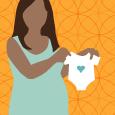Breastfeeding
 roseroseroseroserose
member
roseroseroseroserose
member
What to expect- the toddler years = anti bf'ing!
I just started reading this book b/c a friend gave it to me. For 13 mos it went into all this detail about weaning and all these great reasons to stop bfing. It only listed one reason to continue (bfing helps with allergies.)
I was so suprised....until I looked at the copy right and it's much older than I thought. 1994.
SO I am hoping that newer editions are a lot more supportive of bf'ing.
This discussion has been closed.



Re: What to expect- the toddler years = anti bf'ing!
They said that BM is not very nutritious after one year, babies that are bf can't self soothe, nursing to sleep leads to teeth issues...I can't remember them all. There were a few pages devoted to it.
I am glad the newer version is more pro-bfing. I think I need to go to Kellymom.com to get some pro-bfing stats in my head. LOL
You might find this interesting...
Extended Breastfeeding & the benefitsNursing toddlers are SICK LESS OFTEN
The American Academy of Family Physicians notes that children weaned before two years of age are at increased risk of illness (AAFP 2001).
Nursing toddlers between the ages of 16 and 30 months have been found to have fewer illnesses and illnesses of shorter duration than their non-nursing peers "Antibodies are abundant in human milk throughout lactation" In fact, some of the immune factors in breastmilk increase in concentration during the second year and also during the weaning process.Per the World Health Organization, "a modest increase in breastfeeding rates could prevent up to 10% of all deaths of children under five: Breastfeeding plays an essential and sometimes underestimated role in the treatment and prevention of childhood illness."
Nursing toddlers have FEWER ALLERGIES
Many studies have shown that one of the best ways to prevent allergies and asthma is to breastfeed exclusively for at least 6 months and continue breastfeeding long-term after that point.
Breastfeeding can be helpful for preventing allergy by:
reducing exposure to potential allergens (the later baby is exposed, the less likely that there will be an allergic reaction),
speeding maturation of the protective intestinal barrier in baby's gut,
coating the gut and providing a barrier to potentially allergenic molecules,
providing anti-inflammatory properties that reduce the risk of infections (which can act as allergy triggers).
Nursing a toddler is NORMAL
The World Health Organization emphasizes the importance of nursing up to two years of age or beyond (WHO 1992, WHO 2002).The American Academy of Pediatrics recommends that "Breastfeeding should be continued for at least the first year of life and beyond for as long as mutually desired by mother and child... Increased duration of breastfeeding confers significant health and developmental benefits for the child and the mother... There is no upper limit to the duration of breastfeeding and no evidence of psychologic or developmental harm from breastfeeding into the third year of life or longer." The American Academy of Family Physicians recommends that breastfeeding continue throughout the first year of life and that "Breastfeeding beyond the first year offers considerable benefits to both mother and child, and should continue as long as mutually desired." They also note that "If the child is younger than two years of age, the child is at increased risk of illness if weaned.
Scientific research by Katherine A. Dettwyler, PhD shows that 2.5 to 7.0 years of nursing is what our children have been designed to expect (Dettwyler 1995).
References [see also position statements supporting breastfeeding]
Extended breastfeeding good for the mother too...
Yes,that's right...We may have all heard some of the good the greatness of nursing your baby beyond a year..But about the greatness the mom benifits from this? There is a lot
MOTHERS also benefit from nursing past infancy
Extended nursing delays the return of fertility in some women by suppressing ovulation.
Breastfeeding reduces the risk of breast cancer . Studies have found a significant inverse association between duration of lactation and breast cancer risk.
Breastfeeding reduces the risk of ovarian cancer .
Breastfeeding reduces the risk of uterine cancer .
Breastfeeding reduces the risk of endometrial cancer .
Breastfeeding protects against osteoporosis. During lactation a mother may experience decreases of bone mineral. A nursing mom's bone mineral density may be reduced in the whole body by 1 to 2 percent while she is still nursing. This is gained back, and bone mineral density may actually increase, when the baby is weaned from the breast. This is not dependent on additional calcium supplementation in the mother's diet. .
Breastfeeding reduces the risk of rheumatoid arthritis..
Breastfeeding has been shown to decrease insulin requirements in diabetic women
Breastfeeding moms tend to lose weight easier